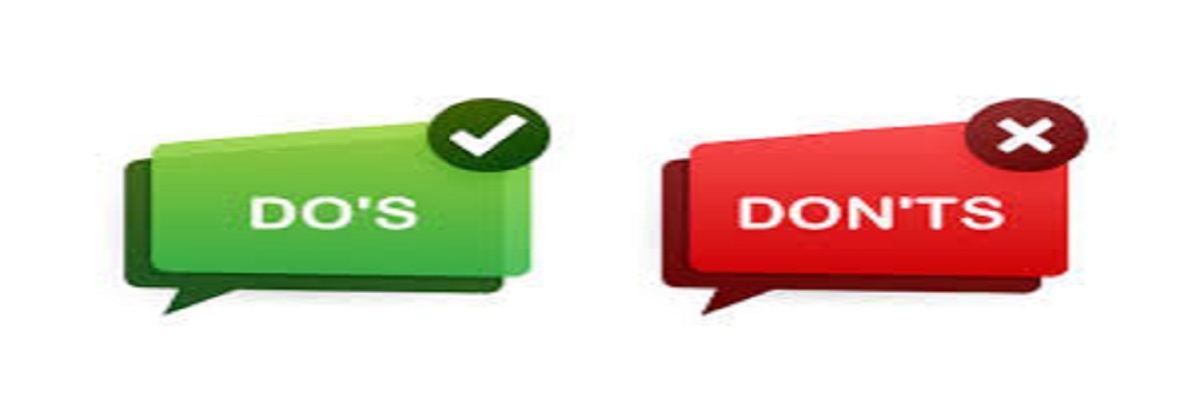Do's And Don't

-
Do Your Research: Learn as much as possible about the company you'll be interviewing with, and know as much about the post. If the company has retail outlets in your area, visit one. If they produce software products, look them over. Talk to people who know the company, explore the business section of the library to get information about the industry, the company and its management. Look over annual and quarterly reports and check the trade publications for the latest information available.
-
Prepare a List of Questions to ask them: It is natural for you to have some questions about the position for which you are being interviewed. Be ready to ask them. You won't likely need to ask every one of them, since much of the information may be covered in the interview process itself. But you should be prepared to find out the specifics.
-
Dress Professionally: Make sure your first impression is a good one by looking professional and confident. Even when the corporate culture is more casual, it doesn't hurt to be the best dressed person in the room during an interview.
-
Arrive Fashionably Early: You should be at the destination and reported to the receptionist well before the interview. Fifteen minutes early is a good rule of thumb. To make sure you don't arrive at the last minute, go over your travel route in advance, and even drive it once to test the route so you are absolutely confident you know how long it will take.
-
Maintain a Friendly and Professional Demeanor: Be accessible and open, but always professional. Listen carefully to the questions being asked, and make relevant and concise responses. Stay on course with your answers, and provide specific examples whenever appropriate to reinforce the points you are making.
-
Ask Permission to Take Notes: It implies that you are very interested in the position and the company, and it shows clearly that you are well organized, detail oriented and thorough.
-
Answer Confidently: Even the toughest questions can be handled with poise and confidence. Don't try to hide weaknesses in your experience or difficult relationships in your work history. Never dwell on the negative, and put a positive, but honest spin on things.
Things to Avoid
-
Try to avoid giving out too much personal information (i.e., financial problems, marital status, children, etc.). Avoid questions about salary and benefits until the job is offered.
-
Don't talk too much: Bring a few pointed, well thought out questions regarding the position (i.e., duties, responsibilities, territory size, commission structure, potential for advancement).
-
Don't be late: If at all possible, be early at least 5-10 minutes prior to the interview.
-
Don't brag: It is fine to bring a "brag book" with you to the interview that lists your accomplishments. However, try not to rely on it.
-
Don't brag: It is fine to bring a "brag book" with you to the interview that lists your accomplishments. However, try not to rely on it.
-
Use it as a guide to show the interviewer what you can do for their company.
